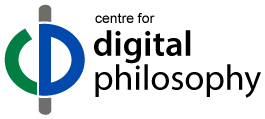- Submit
-
Browse
- All Categories
- Metaphysics and Epistemology
- Value Theory
- Science, Logic, and Mathematics
- Science, Logic, and Mathematics
- Logic and Philosophy of Logic
- Philosophy of Biology
- Philosophy of Cognitive Science
- Philosophy of Computing and Information
- Philosophy of Mathematics
- Philosophy of Physical Science
- Philosophy of Social Science
- Philosophy of Probability
- General Philosophy of Science
- Philosophy of Science, Misc
- History of Western Philosophy
- Philosophical Traditions
- Philosophy, Misc
- Other Academic Areas
- More
Switch to: References
Citations of:
Epistemic Paternalism, Open Group Inquiry, and Religious Knowledge
Res Philosophica 98 (2):261-281 (2021)
Add citations
You must login to add citations.
|
|
|
Hume begins his Dialogues Concerning Natural Religion by providing a discussion on what an ideal dialogue ought to look like. Many considerations that Hume raises coincide with similar concerns in contemporary social epistemology. This paper examines three aspects of Hume’s social epistemology: epistemic peerhood, inquiry norms and the possibility of rational persuasion. Interestingly, however, I will argue that the conversation between Philo, Cleanthes and Demea falls short of meeting Hume’s articulated standard of what an ideal dialogue ought to look like. (...) |


